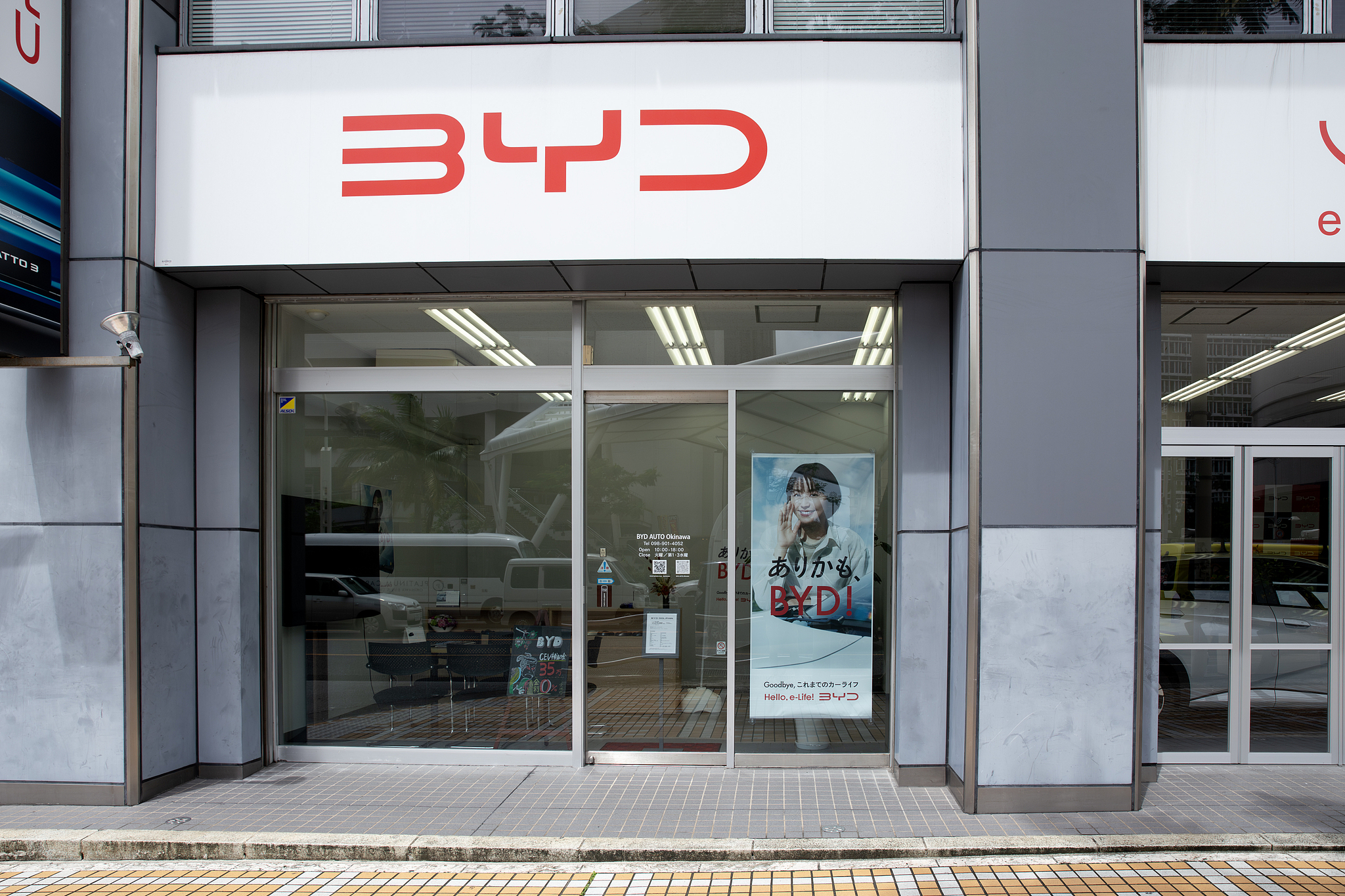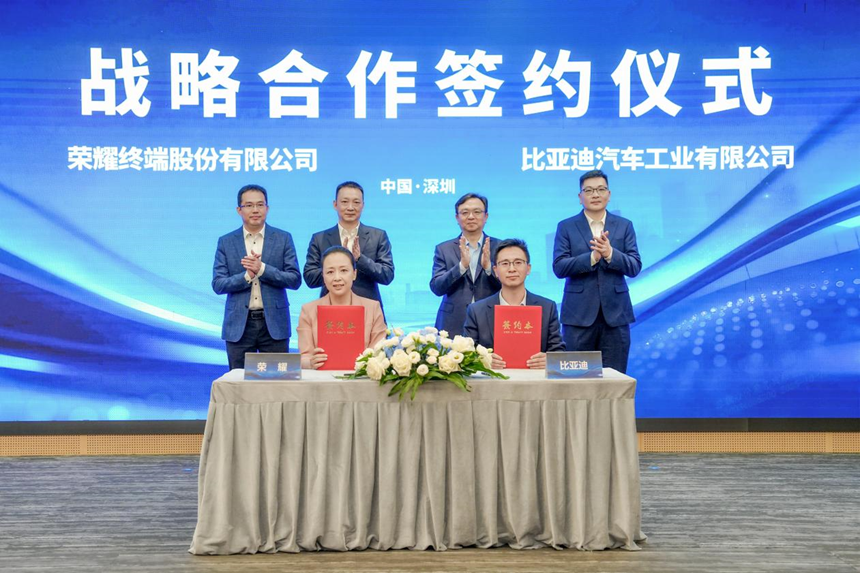
Although BYD has become the world's leading manufacturer of new energy vehicles, it faces challenges in the "oil and salt won't enter" Japanese market.
Recently, BYD has been accelerating the construction of charging stations and strengthening its marketing and incentive measures in Japan, aiming to overcome this "obstacle" that affects BYD's global ambitions.

On June 19, 2024, in Okinawa, Japan, a BYD car sales outlet.
This year, the Japanese government followed the lead of Europe and the US by changing the way electric vehicle subsidies are calculated. As a result, brands like BYD saw a reduction in the subsidies for their products in Japan.
To win over the Japanese market, BYD is now offering zero-interest loans and free home charging stations along with cash-back incentives to the first 1,000 users of its new cars. Moreover, BYD has also hired a well-known Japanese actress for its television advertisements.
For a long time, demand for electric vehicles in Japan has remained sluggish. However, the good news is that this trend has started to change this year. According to CnEVPost, in the first half of this year, imported car sales in Japan fell by 7% to 113,887 units, while sales of pure electric vehicles increased by 17%, reaching 10,785 units, accounting for nearly 10% of the total imported cars in Japan. Compared to the same period last year, the market share of electric vehicles rose by 2 percentage points to about 9.5%.
The best-selling imported car brand in Japan was Mercedes-Benz, with 25,692 vehicles sold, marking a 0.4% increase. In second place was BMW, which saw a 3% decline to 16,102 vehicles. By comparison, BYD, which sells three models in Japan (Atto 3, Dolphin, and Seal), ranked 14th among imported car brands in Japan in the first half of this year, rising four places from 18th in the same period last year.
However, the situation remains unclear; in absolute numbers, BYD's market share in Japan is still quite small. Since BYD announced its entry into the Japanese market last February, its cumulative sales in Japan have just exceeded 2,500 vehicles, while Tesla's sales during the same period reached over 17,000 units. Even Toyota, which is not particularly strong in electrification, sold over 4,200 pure electric vehicles in Japan during the same timeframe.
Looking at BYD's market share in various regions, the Japanese market appears to be in its "infancy." Public data shows that in the first half of this year, BYD sold 203,404 new energy vehicles overseas, a year-on-year increase of 173.80%, accounting for 12.6% of its total sales. However, the Japanese market only contributes 0.5% to BYD's overseas sales.
Currently, although BYD has announced plans to build 100 charging stations in Japan by the end of 2025, media surveys indicate that some consumers are still reluctant to accept BYD. This reluctance is not specifically targeted at the company itself, but stems from a general mistrust of "Chinese manufacturing."
58-year-old Yukihiro Obata was visiting the BYD showroom in Yokohama. When asked about his views on BYD, he said, "These cars are great, but I don't think they will sell well in Japan. Japanese people believe that Japanese products are superior to those from China and Korea. We just can't believe that the quality of Chinese products could be better." He added that he does not oppose purchasing foreign cars, but would prefer to buy "electric vehicles from Mercedes-Benz, Audi, or Hyundai."
Atsuki Tofukuji, the president of BYD Japan, stated, "In Japan, some people do not like Chinese products and think buying them is not a good idea. So, forcing promotion is unwise." However, he also pointed out that they have hired many experienced salespeople familiar with importing cars, and they have made some progress in building a customer base.
It would be unfair to blame Japanese people for being "ignorant"; it's simply a matter of ingrained thinking patterns. German manufacturing, now renowned worldwide, was once looked down upon. It was precisely because Germany missed out on the era of steam-powered industry that it was able to leap ahead during the electrification era and gradually surpass Britain and France, becoming a benchmark. Now, Chinese manufacturing is undergoing a similar process. Chinese cars face challenges in overtaking Europe, America, and Japan in the traditional fuel vehicle sector. However, in the realm of new energy vehicles, the early momentum of Chinese brands will leave an increasingly deep mark in the minds of people worldwide over time.
As for BYD, it is working diligently and slowly to change these stereotypical perceptions of Chinese manufacturing in the market.


